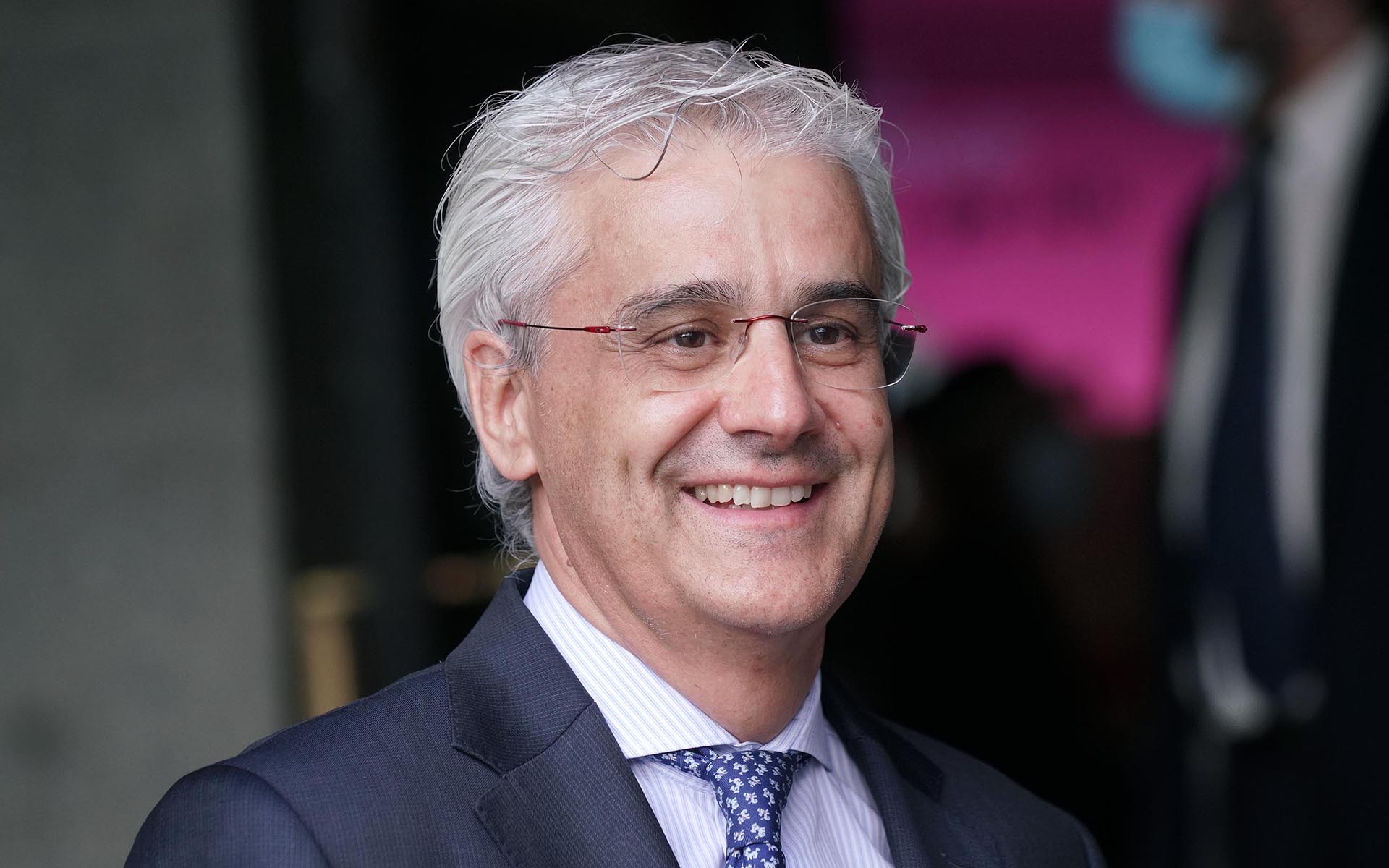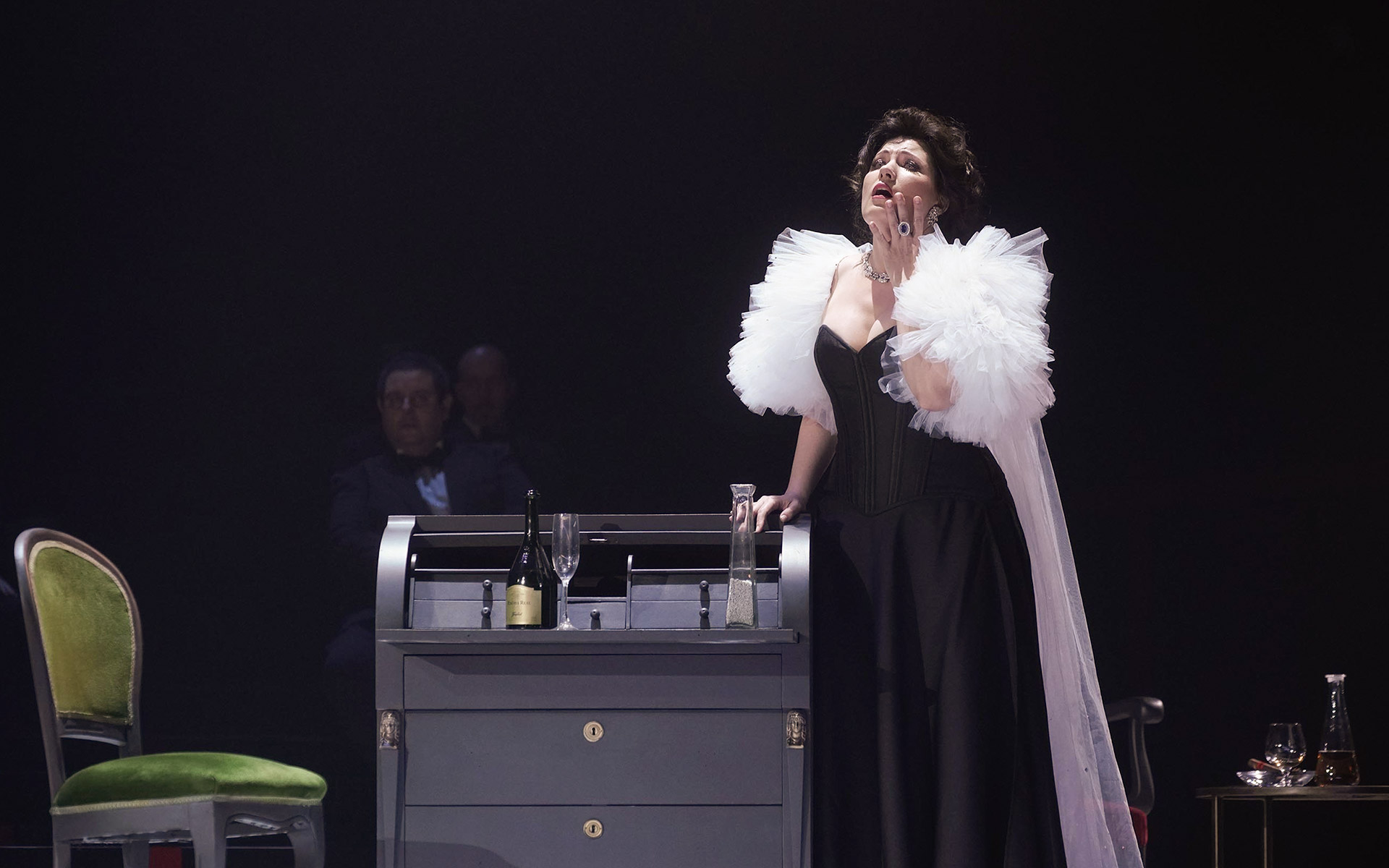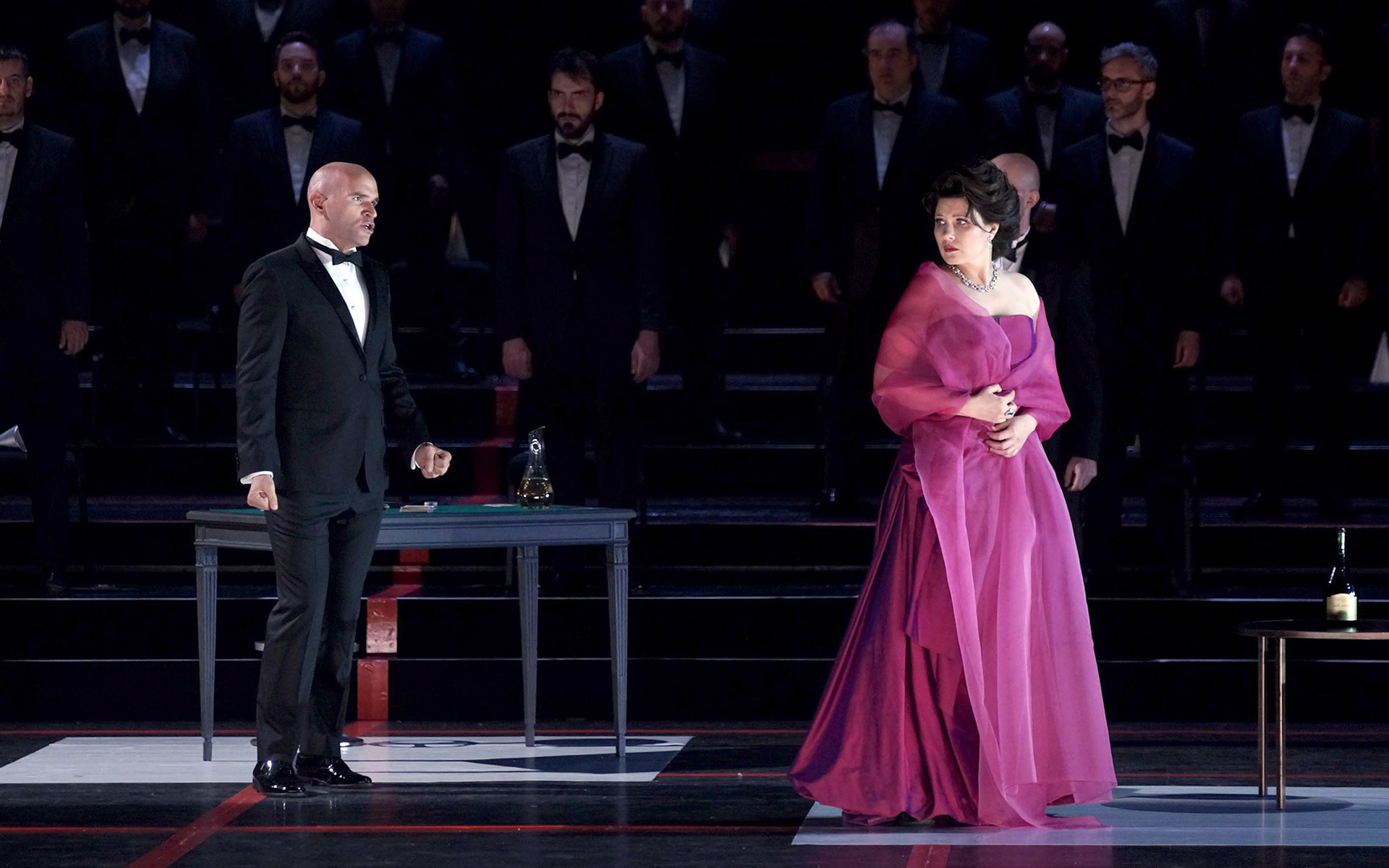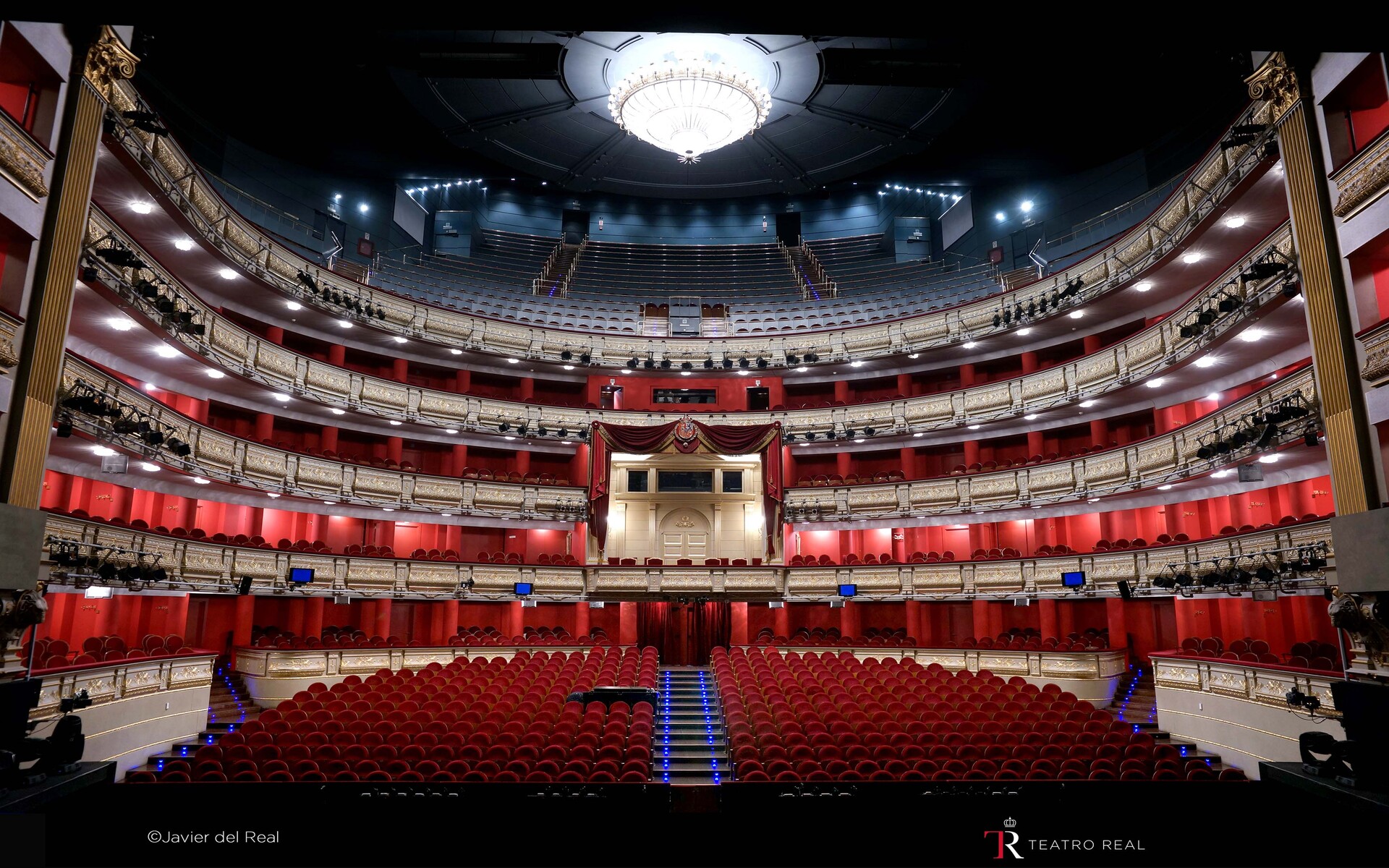The Classical Tradition in American Art | Octubre-Noviembre
Opera
Philip Glass
Orphée
21 Sep, 22 - 25 Sep, 22
Performances at Teatros del Canal
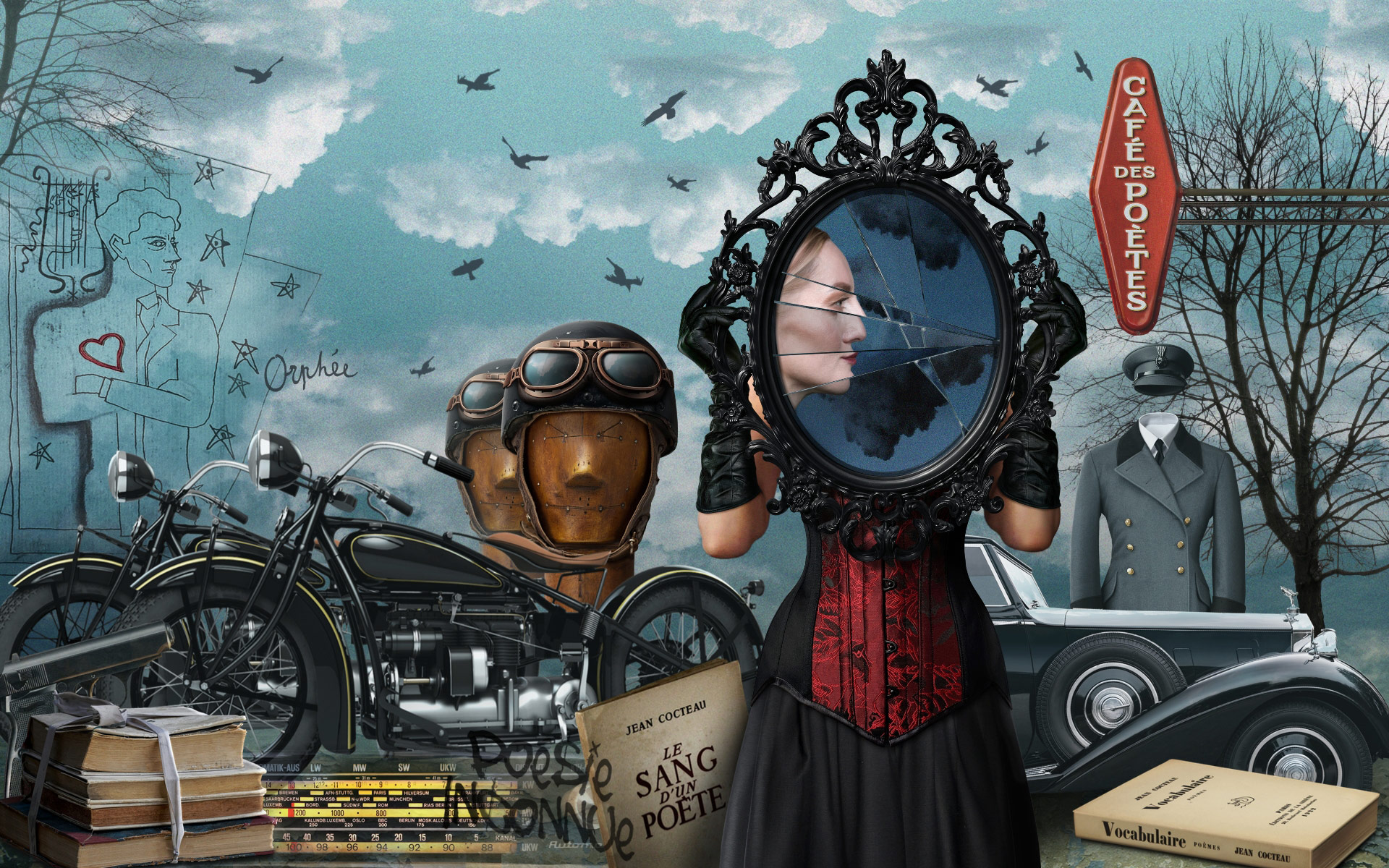
Musical Conductor: Jordi Francés | Stage Director: Rafael R. Villalobos | Titular Orchestra of Teatro Real
The myth of Orpheus is, above all, the translation to a symbolic language of mourning after the death of a loved one: denial, negotiation and acceptance find their way of expression through the pointless endeavour of the central character to rescue Eurídice from the kingdom of Hades and of his failed pact with the divinities of the underworld. Jean Cocteau, author of the cinematographic script which is the inspiration for this opera, directed the film Orphée (1950) after losing his lover, Raymond Radiguet, who was only 20 years old. His exploration of the myth - with allusion to Gluck’s Orfeo - is articulated as “ the successive deaths through which a poet must pass before he is changed into oneself”
The loss of his own partner, designer and multimedia artist Candy Jernigan, also inspired Philip Glass to undertake this double tribute for what would become the first title in a trilogy of chamber operas based on Cocteau – the others are La Belle et la Bête and Les Enfants terribles - which are totally independent of each other. First seen in 1993, the composer transforms the death of the young poet Cégeste into the point of departure and return of a unique descent to the underworld.
Chamber opera in two acts
Music by Philip Glass (1937)
Libretto by Philip Glass, based on the homonymous film (1950) by Jean Cocteau
Premiere at the American Repertory Theatre of Cambridge (Massachusetts), 14 may 1993
Season premiere at the Teatro Real
New production of the Teatro Real and Teatros del Canal
Artistic team
Musical Conductor | Jordi Francés
Stage Director | Rafael R. Villalobos
Stage Designer | Emanuele Sinisi
Light Designer | Irene Cantero
Movement Director | Javier Pérez
Video Designer | Cachito Valdés
Cast
The princess | María Rey-Joly - 21, 22, 24, 25 sep
| Isabella Guadí - 23 sep
Eurídice | Sylvia Schwartz - 21, 22, 24, 25 sep
| Natalia Labourdette - 23 sep
Heurtebise | Mikeldi Atxalandabaso - 21, 22, 24, 25 sep
| Igor Peral - 23 sep
Orfeo | Edward Nelson - 21, 22, 24, 25 sep
| Alejandro Sánchez - 23 sep
Aglaonice | Karina Demurova
Cégeste | Pablo García-López - 21, 22, 24, 25 sep
| Emmanuel Faraldo - 23 sep
The journalist / Glazier | Emmanuel Faraldo - 21, 22, 24, 25 sep
| Pablo García-López - 23 sep
The poet | Cristian Díaz
The judge | David Sánchez
The sheriff | Tomeu Bibiloni
The police man | Alejandro Sánchez - 21, 22, 24, 25 sep
| Tomeu Bibiloni - 23 sep
Titular Orchestra of Teatro Real
Performances
- Date/hour
- Space
- Cast
- Subscription ticket
Cultural activities
Curso en Inglés
00
00
00
00
Curso en inglés presencial
La tradición clásica en el arte, arquitectura y cine americanos
Curso presencial del 7 de octubre al 16 de diciembre
00
00
00
00
Coloquio
Interpreting Orpheus: Meet Baritone Edward Nelson
Coloquio
23 septiembre, 2022
19:00 - 20:00 horas
23
September
2022
19:00
Retrospectiva
Retrospectiva sobre María Casares y Jean Cocteau | Noviembre
00
00
00
00
Ciclo de cine
Regresos y entradas en los infiernos | Noviembre
00
00
00
00
Homenaje a María Casares
Homenaje a María Casares
00
00
00
00
Concierto
Concierto didáctico con obras de Philip Glass | Abril
00
00
00
00
Proyección
Proyección de Akhnaten y Satyagraha (producciones del MET) y de Einstein on the Beach | Noviembre-Diciembre
00
00
00
00
Are you an Amigo del Teatro Real yet?
Live the Teatro Real experience beyond its wonderful productions and you will contribute to elevating our institutional project.



